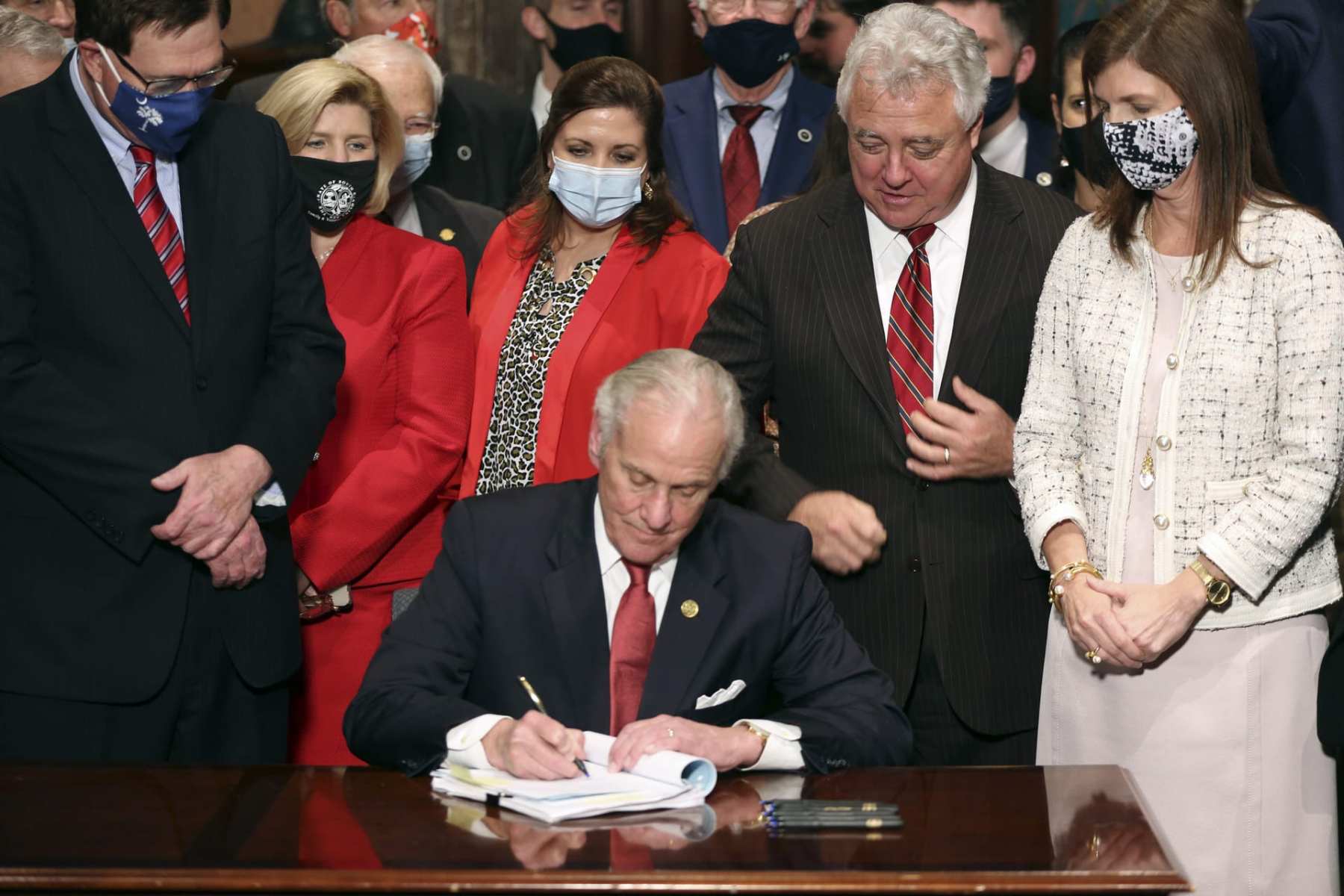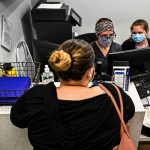We’re the only newsroom dedicated to writing about gender, politics and policy. Subscribe to our newsletter today.
South Carolina’s Republican governor on Thursday signed a bill into law that would ban nearly all abortions in the state. The law would effectively prohibit abortions as early as six weeks of pregnancy, before many people know they’re pregnant.
On Friday, a federal judge temporarily blocked South Carolina’s ban from staying in effect. Courts have prevented similar near-total abortion bans from going into effect in several other states, including North Dakota, Iowa, Kentucky and Ohio.
“Abortion bans disproportionately hurt those that already have the least access to quality health care, including people with low incomes, people of color, people who are LGBTQ, and those who live in rural areas,” Jenny Black, president and CEO of Planned Parenthood South Atlantic, said in a statement. “If this law is allowed to go into effect, it will pose a serious threat to South Carolinians’ health and livelihood.”
South Carolina Attorney General Alan Wilson, a Republican, released a statement on Thursday acknowledging the lawsuit.
“My office will vigorously defend this law in court because there is nothing more important than protecting life,” he said.
The law would make abortion illegal, with narrow exceptions including cases of rape or incest or if the life of the pregnant person is at risk. Doctors who perform an abortion on a victim of rape or incest will be required to report the allegations to law enforcement, including contact information for the pregnant person.
Doctors will face a felony charge and possible fines and incarceration if they violate the law. Pregnant people who violate the law do not face charges.
Hours after the legislature voted to pass the bill, Gov. Henry McMaster signed it surrounded by abortion opponents who have framed the legislation as a “heartbeat” bill. The governor said he had a “duty” to “protect life above all else.” He also called the law a step that “was long in coming and monumental in consequence.”
“This is a great day. It’s a happy day,” he said. “There’s a lot of happy hearts beating right now all across South Carolina.”
Republican lawmakers who support near-total abortion bans have indicated that they’re advancing these bills to bring such legislation in front of a conservative-leaning U.S. Supreme Court. Attorneys for abortion-rights advocates have successfully argued in court that these laws violate Roe v. Wade — the landmark 1973 ruling that legalized abortion nationwide.
“They see new justices, and they think they have a chance of overturning nearly 50 years of precedent, so they’re spending taxpayer dollars to defend what are actually blatantly unconstitutional laws,” said Alexandra Thompson is a staff attorney for Center for Reproductive Rights, one of the co-lead counsels in the lawsuit.
The South Carolina measure advanced quickly through the legislative process over several weeks. Republicans control both chambers of the South Carolina statehouse and expanded that control in the 2020 election. The additional power gave them more leeway in advancing the bill this session.
The Senate passed the bill late last month before the final vote Thursday in the House. The Democratic minority caucus, during a procedural vote on the bill the previous day, walked out of the House chamber in protest.
Abortion-rights advocates say the legislation is the first major abortion restriction passed out of a statehouse in 2021. In mid-January, they estimated that they’ve tracked more than 100 bills filed in statehouses this year around the country that would curtail abortion access. One month later, they said that tally is now up to more than 200 bills aimed at restricting or banning abortion.
In South Carolina, most abortions are already restricted after about 20 weeks of pregnancy. Telemedicine abortion is also prohibited.
The Center for Reproductive Rights and Planned Parenthood are representing Planned Parenthood South Atlantic and Greenville Women’s Clinic in the lawsuit. Several state officials, including members of the South Carolina Board of Medical Examiners, are listed as defendants.






